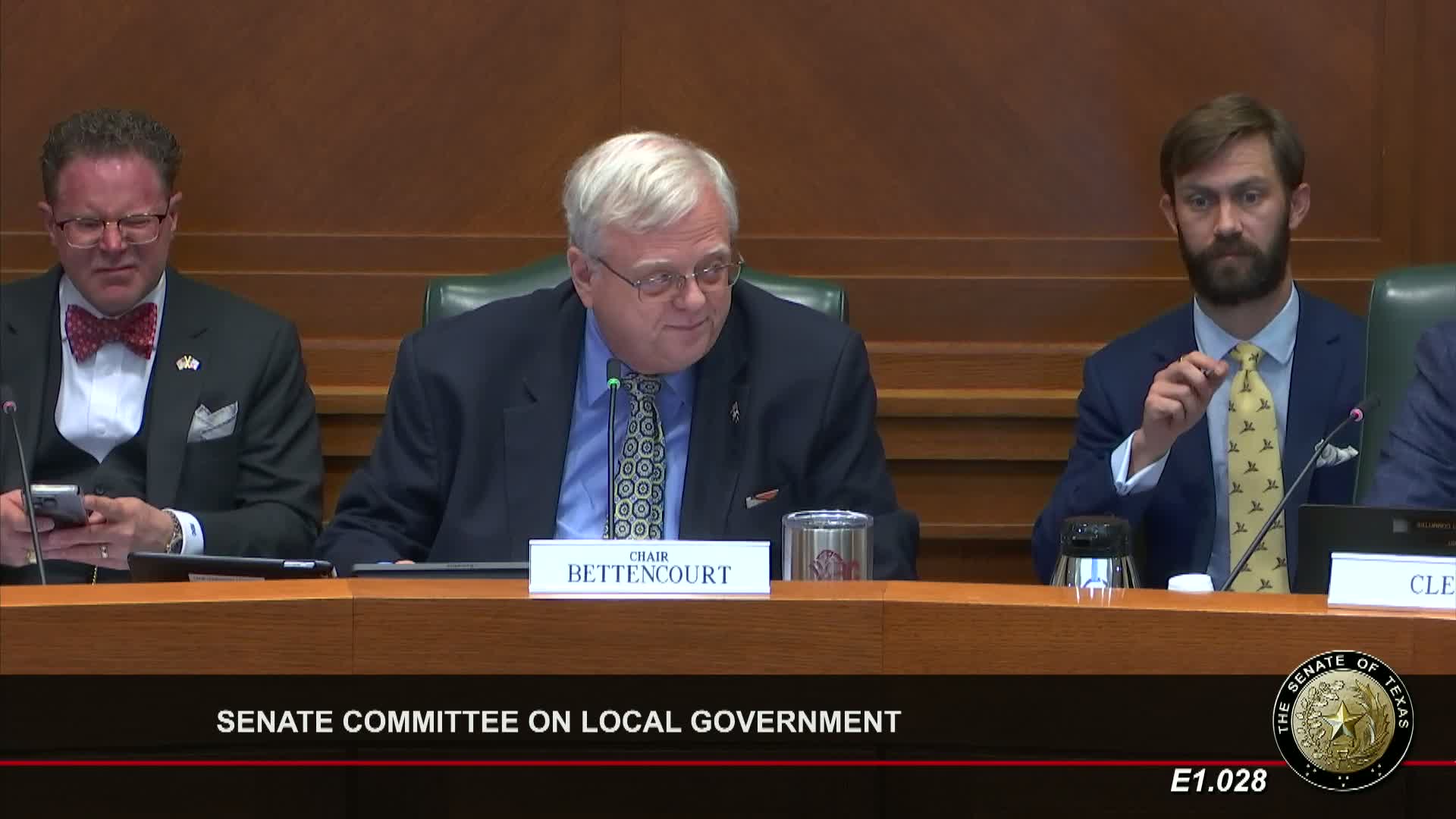Senate panel hears competing views on HOA reforms aimed at resident control and limits on fines, assessments
Get AI-powered insights, summaries, and transcripts
Subscribe
Summary
Senate Bill 19 35, carried by Senator Juan Hinojosa, was the focus of a lengthy committee discussion Wednesday on reforms intended to increase homeowner control and limit HOA assessments and fines.
Senate Bill 19 35, carried by Senator Juan Hinojosa, was the focus of a lengthy committee discussion Wednesday on reforms intended to increase homeowner control and limit HOA assessments and fines.
Hinojosa said the bill would impose clearer timelines for when residents gain voting control of community association boards, require in‑person meetings within 10 miles of a subdivision when a majority of board members are not elected by owners, cap ongoing fines for continuing violations and limit annual regular assessment increases to 5% unless a majority of owners vote to exceed the cap.
Representatives of community association groups and property‑management interests testified in opposition or raised concerns. Clint Brown of the Texas Legislative Action Committee (a division of the Community Associations Institute) and Mike McLaughlin of Texas Community Association Advocates urged caution on provisions they said could compel volunteer boards to underfund reserves and deferred maintenance. Both witnesses emphasized that associations are nonprofits funded by owners and warned that a strict cap on annual assessment increases or a requirement that the entire membership vote to exceed a 5% increase could make it impossible to address sudden, large‑ticket repairs (roofs, foundations) or insurance‑related costs.
JD Hale of the Texas Association of Builders, speaking for developers, expressed particular concern about shortening or eliminating declarant (developer) control periods. He said developers make large upfront investments and need a degree of control while lots are still for sale and the development is completed.
Senator Hinojosa and other senators pressed witnesses about existing statutory protections and tools available to homeowners, including chapter 209 of the Texas Property Code, which grants owners the right to serve on boards. Witnesses responded that those protections do not always translate into practice in some communities and that the bill aims to address abuses where developer control extends long past initial buildout.
Public testimony was limited; the committee accepted submitted statements and encouraged stakeholders to work on drafting. The committee closed public testimony and left SB 19 35 pending.
Ending: Senators asked the bill author and stakeholders to meet to refine language addressing maintenance funding, developer control timelines and enforcement of owners’ rights.
